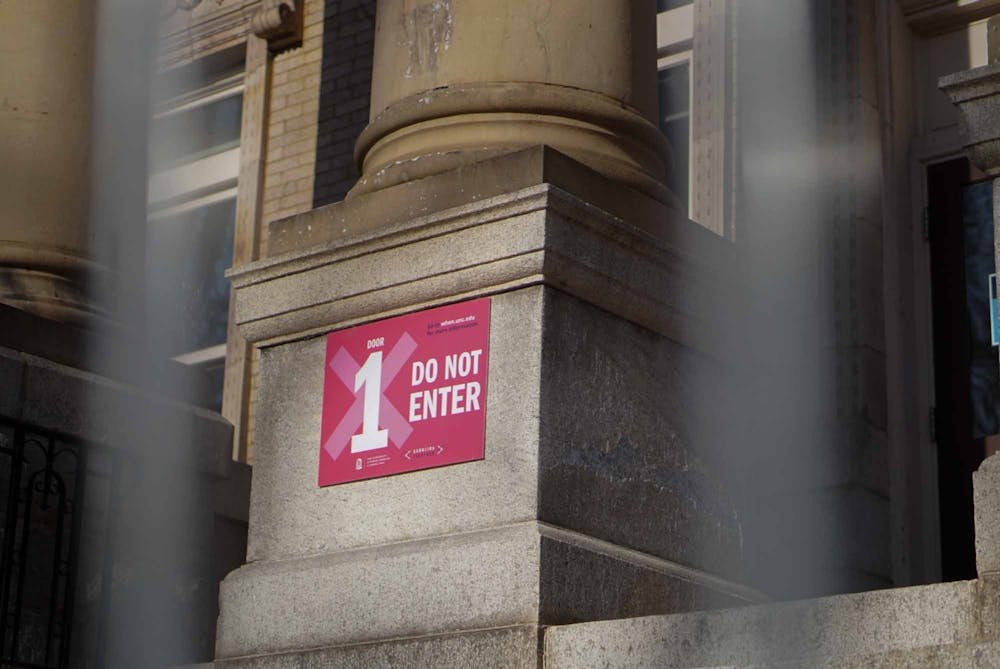The University has expanded the number of greeter kiosks that are around campus — and the kiosks will catch you maskless in 480p resolution.
Designed by UNC students under the guidance of Steven King, chief innovation officer for the Reese Innovation Lab, the Health Greeter Kiosk uses artificial intelligence and computer vision to detect if people are wearing masks and if they are social distancing.
Though first seen at Kenan Stadium in the fall, the kiosks are now deployed at select locations on campus — including Carroll Hall and the McColl building.
King said the main goal for the project was to figure out how to use technology to encourage people to wear masks and to spread out.
The kiosks work by analyzing video frames for human faces and determining if they are wearing a mask or not. If the kiosk doesn’t detect a mask, King said it will display a positively-worded message encouraging mask-wearing.
“The kiosks look like they’re recording video, but they’re not,” he said. “They take a single frame of video, they analyze it, and then immediately in one-thirtieth of a second, take the next video and analyze it and the next frame and the next frame.”
Natalie Huggins, one of the student user experience designers for the project, said that student reactions were a major discussion when developing the project.
“Some people don’t want to be on camera, and then they’re going to wonder if they’re being recorded or if they’re going to be reported,” she said. “We really had the design in mind to think about those student concerns. Those are human concerns for any kind of human or mirror technology.”
King said that the kiosks do not employ any facial recognition technology and that all data is collected anonymously.




